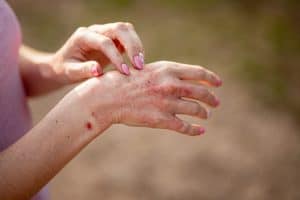
‘Vaccine’ to lower cholesterol enters human trials
pharmafile | June 20, 2017 | News story | Manufacturing and Production, Research and Development | AFFiRis, cholesterol, diabetes
After positive results for a ‘vaccine’ to combat fatty deposits in the arteries in mice, the researchers have taken the trial forward into Phase 1 trials in humans. Should the tests prove successful and fail to show any cause for concerns over safety, the research could pave the way for injections to combat ‘bad’ cholesterol in those most vulnerable to high levels.
The drug, AT04A, is not strictly a vaccine, as it actually encourages the body’s immune system to attack a naturally occurring protein, known as PCSK9, that allows low density lipoprotein (LDL) cholesterol to build up in the bloodstream.
In studies, mice that were fed an unhealthy ‘Western’ diet saw a 53% reduction in total blood cholesterol and saw a 64% decrease in fibrous deposits on the walls of arteries, compared to control mice.
The potential therapeutic option for those suffering from high levels of LDL cholesterol has been developed by an Austrian biotech. The biotech expects that if the safety profile were to hold up in trials, the vaccine would be able to be administered every year to boost the body’s immune system reaction.
Dr Gunther Staffler, Researcher and Chief Technology Officer at AFFiRis, the company behind the vaccine, reportedly said: “AT04A was able to induce antibodies that specifically targeted the enzyme PCSK9 throughout the study period in the circulation of the treated mice. As a consequence, levels of cholesterol were reduced in a consistent and long-lasting way, resulting in a reduction of fatty deposits in the arteries and atherosclerotic damage, as well as reduced arterial wall inflammation.”
There has been a positive response to the findings so far, but there is some wariness that such a treatment would require a long follow-up to determine any permanent side-effects. It has also been mooted that the treatment could potentially increase the risk of diabetes, though this was not found to occur in mice that formed part of the early study.
Ben Hargreaves
Related Content

MetP Pharma releases positive data on intranasal semaglutide administration
MetP Pharma has released new data highlighting the advantages of its MetP technology in delivering …

AOTI diabetic foot care therapy to be used by NHS
Effective from September 2025, AOTI’s Topical Wound Oxygen (TWO2) therapy has been awarded inclusion in …

Recce Pharmaceuticals reports positive phase 2 data for skin infection drug
Recce Pharmaceuticals have announced positive patient data from its phase 2 clinical trial into RECCE …






